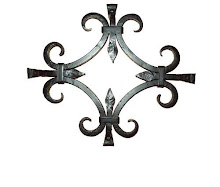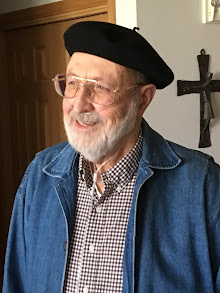The kenotic sense of Christ on the cross sharing the suffering of everyone as they face the moral dilemmas of life could help to develop a more adequate moral compass if it could be better understood and elaborated philosophically and theologically.
I wish I could flesh out the "moral compass" the writer calls for.
There is another quote of his that perhaps provides a further clue:
The image of the self-emptying Christ (Philippians 2:6-11) helps to strip away what may now be counterproductive remnants from the past in our sacred symbol system."To strip away... counterproductive remnants." I suspect there would be big controversy over what exactly is "counterproductive" - and I'm not sure myself if the problem is with the "symbol system" - as the writer suggests. Though I suppose it depends on how one understands those words, that conceptual system. But stripping away - leaving oneself open to a kenosis, a self-emptying. Now that makes sense to me.
It reminds me of Andre Louf's book, The Way of Humility. How our broken hearts are themselves the opening for God's work in us. How our puffed up selves run so counter to God's unceasing efforts to reach and transform us. How it is in our darkest moments, when we turn ... from within our own emptiness ... with a pinpoint yearning, stretching out with every fiber of our being, then letting go. And simply falling into the outstretched, already waiting arms of God ...
And I wonder if the act of allowing ourselves to really endure the suffering of remaining, resting, within the fiery furnace of an ethical conflict or a spiritual struggle isn't what's called for here. Not an intellectual exercise. Not necessarily yielding a rational argument one could articulate. But it seems to me that if one can endure the suffering of the various sides of any conflict - resting within that sacrament where we meet God who, even now, suffers with and for us... that perhaps a transformation may come to pass. Or a transfiguration. Where we find ourselves in a new and promised land. Able to take the path unfolding before us. Or follow the footprints suddenly appearing. Or accept a hidden doorway beckoning.
As we pray. From a place. Of utter extremity:











